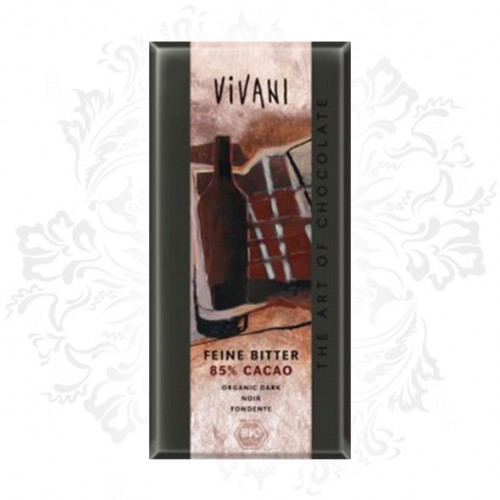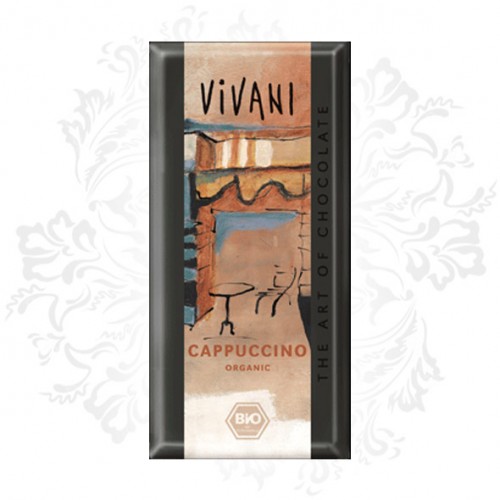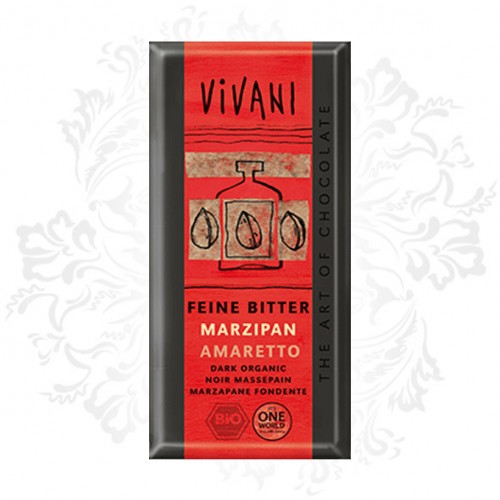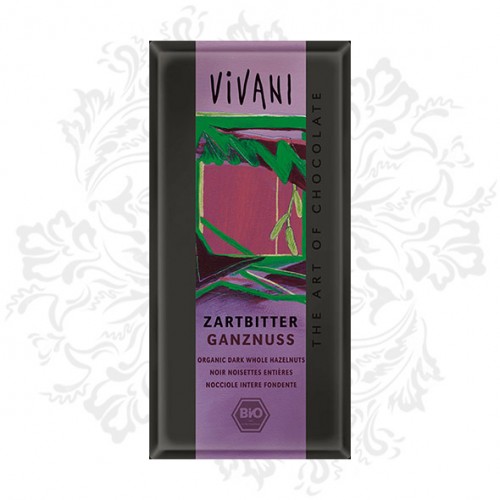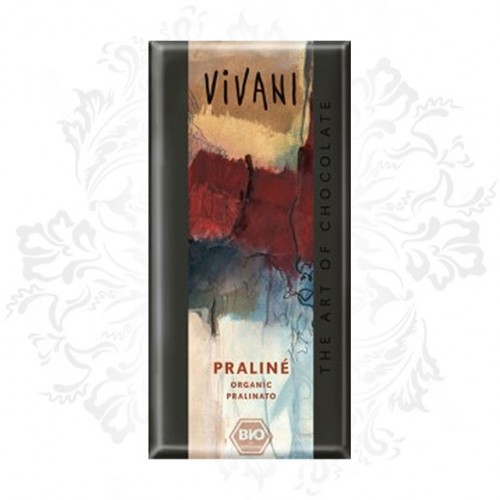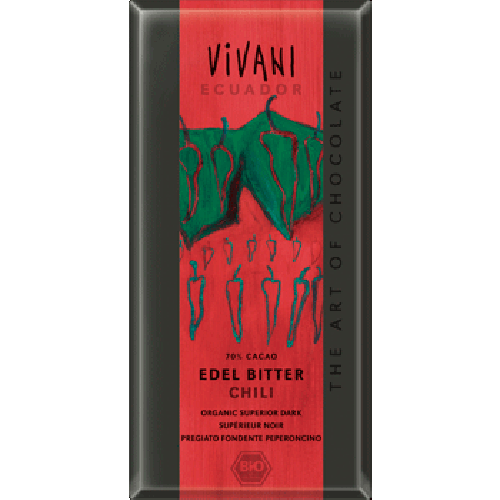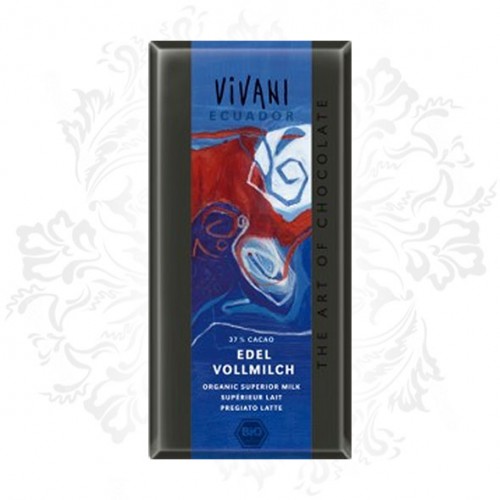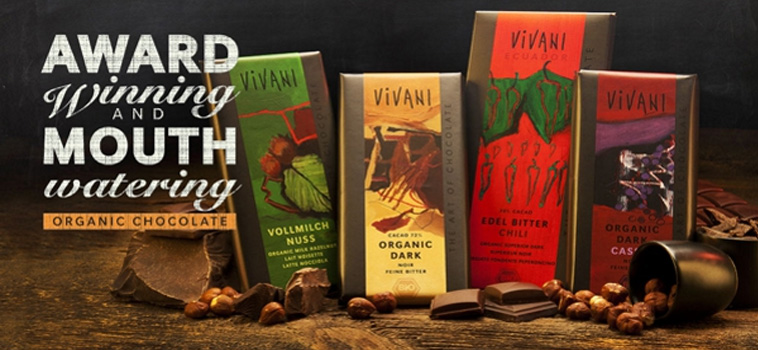
Health by Chocolate
April 2017
The guilty pleasure that so often spoils our delight of indulging in chocolate can now irrevocably be laid to rest as recent clinical studies have disproved the notion that chocolate, specifically dark chocolate is unhealthy. The results show that dark chocolate containing more than 60% cocoa can help prevent heart attacks, strokes, atherosclerosis (hardening of the arteries) and high blood pressure.
These studies stand to have a major impact on our society if one considers that the World Health Organisation (WHO) has released statistics that indicate that heart diseases are one of the biggest killers of our time. Additionally, chocolate is a lot more palatable and cost-effective than traditional heart medications – the cost alone makes it a vital option and worth discussing with one’s health practitioner.
Although some of this might come as a surprise, albeit a delightful surprise, it is not all that unexpected if one keeps in mind that chocolate originally comes from a plant.
Chocolate is made from the beans of the cocoa plant. The pods are split and left to ferment between sheets of banana leaves to remove the bitter taste and enhance the flavour. Afterwards, the beans, which are now a rich brown colour, are dried in the sun and then cleaned, sorted and roasted to bring out that rich chocolaty aroma that we know so well. A number of grinding processes take place to reduce the bean to a smooth, rich mass. During the grinding process, chocolate manufacturers differentiate their chocolates with their very closely guarded recipes. The final stage, which largely defines the quality of the chocolate, is called conching. Conching is a mixing process that determines the fineness, smoothness and lightness of the end product.
Interestingly enough, conching was unintentionally discovered by Rudolphe Lindt in 1879. He accidently left the mixer running overnight and although initially distraught at the thought that he had ruined his chocolate, he discovered to his delight that he had in fact improved the quality.
Although chocolate has been enjoyed and feasted upon since the time of the Aztecs and Mayans, it is only over the last decade that scientists at various institutions and universities around the world have been studying the health benefits of dark chocolate and have discovered some remarkable health benefits.
They found that cocoa beans are packed with antioxidants, which protect the cells and fight the harmful effects of free radicals. The antioxidants in chocolates are called polyphenols, which are particularly high in flavanols, the active ingredient which neutralises free radicals. Two tablespoons of cocoa has over four times the antioxidant ability of four cups of green tea plus 1 cup of blueberries and 1½ glasses of red wine.
Free radicals cause devastating structural changes at cellular level. We acquire free radicals in the normal course of our lives by living and working in polluted areas, smoking and by coming into contact with contaminants. As we grow older our inbuilt antioxidants are no longer able to cope and we need to increase our store through our diet. If our bodies do not have enough antioxidants, it can have a detrimental effect on our health – including our hearts. Free radicals oxidise the LDL (bad cholesterol) in our blood and they start to attract other LDL particles, forming a build-up of plaque on the artery walls. The body’s natural response is to send platelets to reverse the situation. However, they tend to add to the danger as they surround and attach themselves to these clumps adding to the obstruction in the artery. This can eventually lead to atherosclerosis, heart attacks and strokes.
Eight different studies have revealed that the antioxidants found in dark chocolate neutralise the free radicals before they can oxidise the LDL and so doing, slow down the build-up of plaque and clots in the arteries. One particular study did a comparison between dark chocolate and baby aspirin, often prescribed to prevent blood clotting, and found that cocoa’s effect was very similar if not quite as potent as aspirin. Further research carried out in Sweden with 33 000 women showed that the women who ate more than 45g of chocolate each week had significantly lower chance of dying of a stroke (2.5 strokes/1000 women pa as compared to 7.8/1000 pa).
Flavenols also stimulate the formation of nitric oxide, which helps to maintain healthy blood pressure. Nitric oxide is a gas found in the artery walls, and its main function is to ensure that arteries remain wide, open and flexible so that the blood can flow freely and smoothly. A study conducted at Yale University showed that within two hours of eating dark chocolate the 45 subjects showed a decrease in their blood pressure and an improvement in their blood flow.
To date, most of the research into chocolate has focused on the short-term effect. Scientists at the Monash University in Melbourne, Australia decided to investigate the benefits of using dark chocolate over a long period of time. They used a mathematical model based on the Framingham Heart Study, which has collected data about maintaining a healthy cardiac system since the 1940’s. They used this model to predict the effects that chocolate would have on the 2013 people selected, over a period of 10 years. These subjects were chosen because they were at risk of suffering from heart diseases at some stage in the future. Their long-term projection showed that if there was 100% compliance, then approximately one square of chocolate per day could potentially prevent 70 non-fatal and 15 fatal cardiovascular events per 10 000 people. It can be argued, that these reductions are higher than many pharmaceutical interventions.
Even with a compliance rate of 80%, the figures were still impressive with projections of 55 non-fatal events and 10 fatal events per 10 000 people over 10 years. They concluded that a daily intake of dark chocolate “could represent an effective and cost-effective strategy for people with metabolic syndrome (and no diabetes)”.
Using organically grown cocoa beans to make chocolate enhances the process as they are grown without the use of man-made chemicals, drugs, hormones and chemical fertilisers and pesticides. They therefore, have a higher nutrient value, contain no contaminants and do no harm to the rest of the environment. A large amount of cocoa is ecologically grown in third-world countries so each slab of organically grown chocolate that you buy offers greater rewards than just pleasure and health.
You will be aiding these farmers to create a sustainable living for themselves and others and honouring them for preserving the environment.
So snuggle down with a slab of dark organic chocolate knowing that each delectable morsel is healing, not hurting your heart and the world at large.



